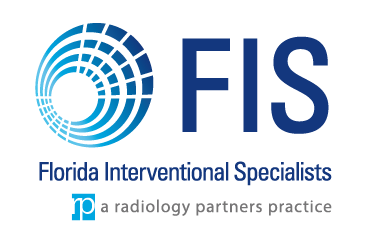Carotid Artery Stenosis



Vascular Experts Treat Blocked Carotid Arteries Without Surgery to Prevent Stroke. A stroke occurs when a blood vessel carrying oxygen and nutrients to the brain is blocked by a clot or bursts, causing the brain to starve. If deprived of oxygen for even a short period of time, the brain nerve cells will start to die. Once the brain cells die from a lack of oxygen, the part of the body that section of the brain controls is affected through paralysis, difficulty speaking, loss of motor skills, or vision.
Stroke Prevalence
- Stroke is third leading cause of death in United States, behind high blood pressure and cancer
- Every 45 seconds someone in the United States has a stroke
- Every three minutes someone dies from a stroke
There Are Two Main Types Of Stroke
Ischemic Stroke: Strokes caused by blood clots that block the artery are ischemic (is-KEM-ik) strokes. This is the most common type, accounting for 70-80 percent of all strokes.
Hemorrhagic Stroke: When a blood vessel ruptures, it causes a bleeding or hemorrhagic (hem-o-RAJ-ik) stroke. The vessels and brain around the bleeding area are starved of oxygen as the blood compresses the structures and prevents blood from entering or exiting tissue.
“Mini-Strokes” There are also “mini-strokes” known as TIA’s (transient ischemic attacks). By definition, TIAs are small strokes that are temporary and resolve when the body breaks up the small clots in the brain causing the symptoms. People who have one TIA are very likely to have another one. People often ignore these symptoms, but they are an early warning sign and 35 percent of those who experience a TIA will have a full blown stroke if left untreated. TIAs should be taken as seriously as stroke.
The Most Common Symptoms of Stroke are:
- Sudden numbness or weakness in the face, arm and/or leg, especially on one side of the body.
- Sudden confusion, trouble speaking or understanding speech.
- Sudden trouble seeing, including double vision, blurred vision or partial blindness, in one or both eyes.
- Trouble walking, dizziness, loss of balance or coordination.
- Sudden severe, headache with no known cause.
If you experience any of these symptoms, even if they go away quickly, seek immediate emergency help.
Every minute counts. Although starved of oxygen, brain tissue does not die in the minutes following a stroke. If blocked blood vessels can be opened within three to six hours, the chances of recovery are greatly improved.
Risk Factors
- Obesity, high blood pressure and high cholesterol all increase the risk of stroke. These risk factors can be greatly reduced with healthy lifestyles or medication.
- High blood pressure puts pressure on the arteries, making them more susceptible to rupture and more prone to clot formation, which can block the artery.
- High cholesterol can lead to blockage in the carotid artery that takes blood from the neck to the brain. A piece of this plaque can break off and travel to the brain, causing a stroke.
- Obesity can cause high blood pressure and high cholesterol.
- Untreated atrial fibrillation causes the heart’s upper chamber to beat irregularly, which allows the blood pool and clot. If a clot breaks off and enters the blood stream to the brain, a stroke will occur.
- Sickle cell anemia makes red blood cells less able to carry blood to the body’s tissues and organs, as well as stick to the walls of the blood vessels. These cells can block arteries to the brain, causing a stroke.
- Family history
- Smoking
THE SERVICES LISTED ON THIS WEBSITE ARE FOR GENERAL INFORMATION PURPOSES ONLY AND DO NOT INCLUDE ALL SERVICES OF FLORIDA INTERVENTIONAL SPECIALISTS. WHILE WE STRIVE TO KEEP THE INFORMATION UP TO DATE AND CORRECT, WE MAKE NO REPRESENTATIONS OR WARRANTIES OF ANY KIND, EXPRESS OR IMPLIED, ABOUT THE CONTENT, COMPLETENESS, ACCURACY, RELIABILITY, LEGALITY, SUITABILITY OR AVAILABILITY, WITH RESPECT TO THE SERVICES CONTAINED ON THIS WEBSITE.

